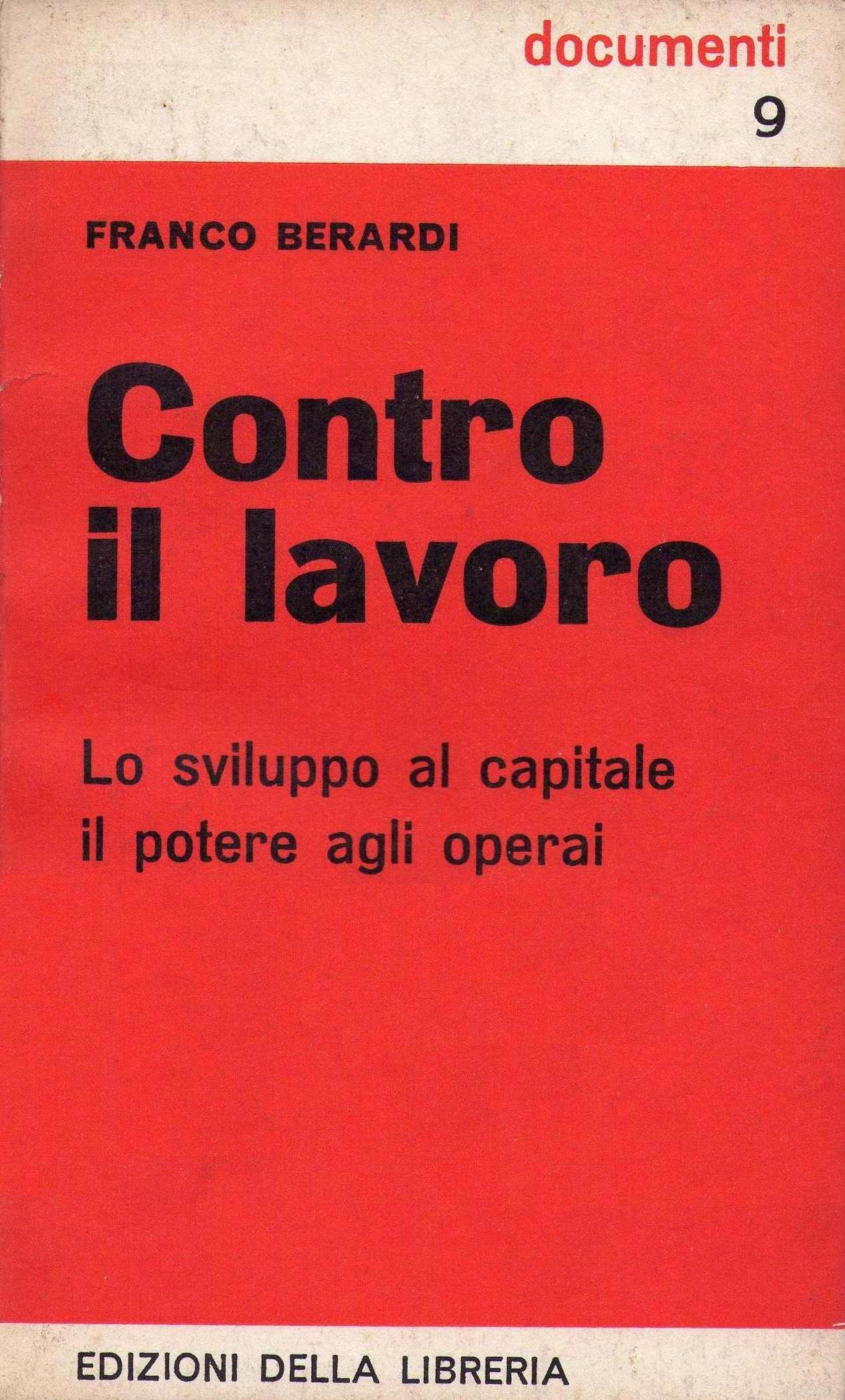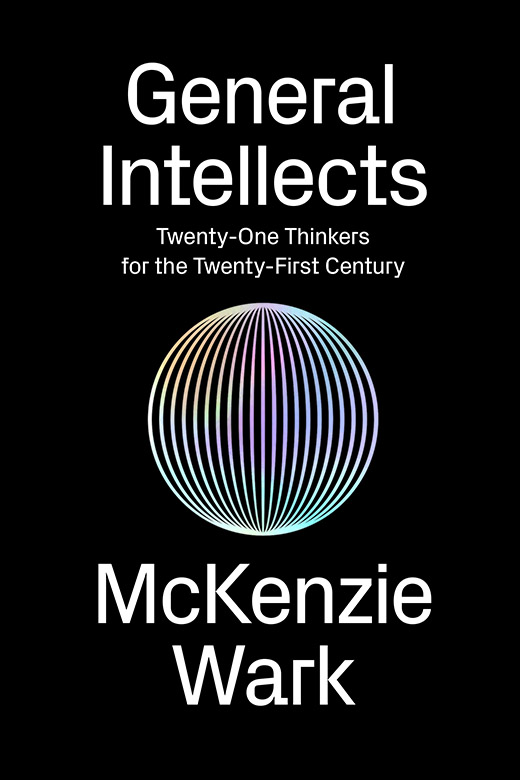Franco Berardi: Contro il lavoro: lo sviluppo al capitale il potere agli operai (1970) [Italian]
Filed under book | Tags: · autonomy, capitalism, ideology, labour, work

“Questo lavoro vuole essere un primo tentativo di costruire sia pure in modo tutto provvisorio, tutto legato alla insorgenza di nuove possibilità ed indicazioni anche teoriche, una impostazione che, partendo dal punto di vista capitalistico, dalla demistificazione dell’ideologia, della scoperta, al di sotto dell’ideologia, dello sviluppo reale del capitale, giunga a decifrare in termini di progetto strategico l’emergenza dei livelli di composizione operaia.
Tutto quello che vi è in questo saggio manifesta la sedimentazione progressiva di ipotesi e linee teoriche legate a situazioni che oggettivamente crescono: e non si può fissare un livello in modo astratto, come ottimale; ma la linea strategica, per non trasformarsi in ideologia, va vista come articolazione teorica del livello pratico delle lotte, che cresce col loro crescere, e non si ferma e fissa ad un livello ottimo. In questo senso i dislivelli (percepibili persino nel linguaggio) rappresentano la crescita di un discorso come articolazione teorica della crescita pratica delle lotte dell’autonomia, dell’organizzazione.”
Publisher Edizioni della Libreria, Milan, 1970
161 pages
via Silvio
PDF (30 MB)
Internet archive (version cleaned by Grafton9, added on 2017-9-6)
Towards a Fairer Gig Economy (2017)
Filed under pamphlet | Tags: · economics, gig economy, labour, work

“Towards a Fairer Gig Economy is a small collection of articles examining the social and economic problems associated with the ‘gig economy’. The gig economy includes a wide range of labour carried out by workers providing services as couriers, taxi drivers, online freelancers and more. Issues examined include an over-supply of labour, falling wages, long hours and poor working conditions. Each article makes suggestions for how these problems can be addressed and how a fairer gig economy can be built: including through regulation, collective bargaining and wider policy recommendations. The collection’s contributors include cycle couriers, union organisers, academics and researchers.”
Contributors: Janine Berg, Christina Colclough, Mags Dewhurst, Dawn Gearhart, Philip Jennings, Guy McClenahan, Trebor Scholz, M. Six Silberman, Nick Srnicek and Valerio De Stefano.
Edited by Mark Graham and Joe Shaw
Illustrations by Irene Beltrame
Publisher Meatspace Press, 2017
Creative Commons BY-NC-SA License
ISBN 9780995577664
34 pages
McKenzie Wark: General Intellects: Twenty-One Thinkers for the Twenty First Century (2017)
Filed under book | Tags: · anthropocene, capitalism, communism, culture, labour, marxism, neoliberalism, philosophy, politics, technology, theory, work

“A guide to the thinkers and ideas that will shape the future
What happened to the public intellectuals that used to challenge and inform us? Who is the Sartre or De Beauvoir of the internet age? General Intellects argues we no longer have such singular figures, but there are, instead, general intellects whose writing could, if read collectively, explain our times. Covering topics such as culture, politics, work, technology, and the Anthropocene, each chapter is a concise account of an individual thinker, providing useful context and connections to the work of the others. McKenzie Wark’s distinctive readings are appreciations, but are nonetheless critical of how neoliberal universities militate against cooperative intellectual work that endeavors to understand and also change the world.”
The thinkers included are Amy Wendling, Kojin Karatani, Paolo Virno, Yann Moulier Boutang, Maurizio Lazzarato, Franco “Bifo” Berardi, Angela McRobbie, Paul Gilroy, Slavoj Žižek, Jodi Dean, Chantal Mouffe, Wendy Brown, Judith Butler, Hiroki Azuma, Paul B. Préciado, Wendy Chun, Alexander Galloway, Timothy Morton, Quentin Meillassoux, Isabelle Stengers, and Donna Haraway.
Publisher Verso, London, 2017
Public Seminar series
ISBN 9781786631909, 1786631903
viii+325 pages
HTML
See also extra chapters on Eduardo Viveiros de Castro, Nick Land, Sianne Ngai, Wang Hui, Amitav Ghosh, Yves Citton and Bruno Latour.

